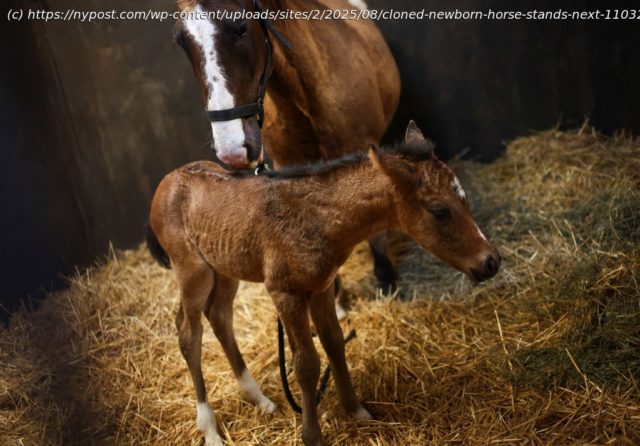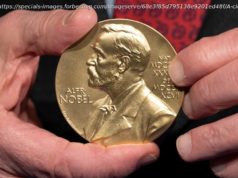Five 10-month-olds are the world’s first genetically edited horses are cloned copies of prize-winning horse Polo Pureza, or Polo Purity, which could change the world of polo.
They look like ordinary foals, docile with honey brown coats and white facial patches, content to spend their days munching alfalfa in a cordoned-off pasture in rural Buenos Aires province.
But these five 10-month-olds are the world’s first genetically edited horses: cloned copies of a prize-winning horse named Polo Pureza, or Polo Purity, with a single DNA sequence inserted using CRISPR technology with the aim of producing explosive speed.
Kheiron Biotech, the Argentine company that created the horses, says gene-editing has the potential to revolutionize horse breeding.
While cloning creates a genetically identical copy, CRISPR functions as a sort of genetic scissors to cut and customize DNA.
The company, which specializes in equine cloning, used CRISPR to reduce the expression of the myostatin gene, which limits muscle growth.
The idea was to increase the muscle fibers that allow for powerful movements and so transform the horses into sprinters.
But polo isn’t letting them in so fast.
While Argentina, regarded as the global capital of polo, has long welcomed reproductive technologies – including cloning – to breed elite horses, the sport’s national body and breeding association are putting up hurdles to prevent GE horses from joining the game.
The Argentine Polo Association has banned GE horses from competition.
“I wouldn’t like them to play polo,” said Benjamin Araya, the association’s president. “This takes away the charm, this takes away the magic of breeding. I like to choose a mare, choose a stallion, cross them, and hope that it will turn out very well.”
And the Argentine Association of Polo Horse Breeders told Reuters it will monitor the horses for four or five years before making a decision on whether to register them as Argentine polo ponies.
Kheiron said it was confident the polo community would eventually come around.
“The truth is that I’m not so worried about it,” Gabriel Vichera, the company’s scientific director, told Reuters. “Educating, I think that’s what we have to keep doing.”
It’s unclear how the sport’s national body would enforce a ban.
Argentine regulations do not distinguish between cloned, GE and conventionally bred horses and neither does the polo association.
Some breeders said that while they appreciate how clones can help preserve the bloodlines, gene-editing goes too far and could threaten their business.The $800K Clone Horse
“This ruins breeders,” said Marcos Heguy, a breeder and former professional polo player.
Home
United States
USA — Science World’s first ever genetically-edited horses could revolutionize sports and breeding as we...






